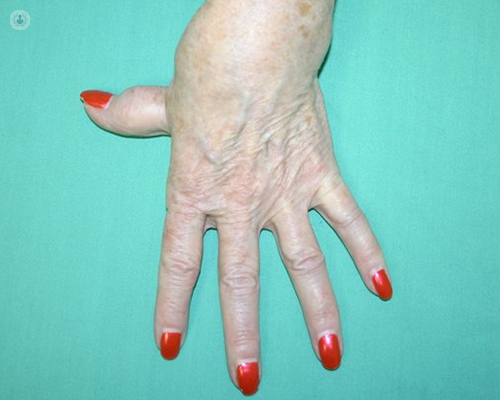

What is rheumatism?
Rheumatism was the common name given to musculoskeletal disorders that affect one or more structures such as ligaments, tendons, muscles and bones. The term is no longer used by medical professionals, yet words similar to rheumatism such as rheumatoid and rheumatology are still in use. Today, doctors are much more specific in their diagnoses regarding rheumatic diseases and do not use the term rheumatism as a diagnosis but as a category of conditions, such as rheumatoid arthritis.

Rheumatism is a general term, which describes a number of different conditions that produce similar symptoms. Overall, rheumatic conditions are caused by the wear of articular cartilage, inflammation of a joint or bone decalcification. Rheumatic pain may occur from the same joint or from structures around it, such as muscles, tendons, etc. It can also appear solely in the joints or produce pain so persistent that it can affect the quality of sleep.
What are the rheumatic symptoms?
Rheumatism is a broad category but there are several fundamental symptoms among all conditions, which include:
• Pain in hands, fingers, shoulders or knees
• Stiffness, swelling and tenderness in joints and muscles
• Redness and warmth in muscles
• Lack of mobility in specific joints and muscles
What are the different types of rheumatic diseases?
There are over 100 types of rheumatism and each has varying symptoms and treatment options. Overall, rheumatic conditions affect the musculoskeletal system. Some of the most common conditions are:
• Rheumatoid arthritis
• Osteoarthritis
• Rheumatic fever
• Juvenile Rheumatoid Arthritis
• Rheumatic heart disease
• Gout • Fibromyalgia
• Lupus
How is rheumatism diagnosed?
It is difficult to diagnose rheumatic conditions because the symptoms tend to crossover between the different types. The patient will have a physical examination and be asked specific questions about their symptoms. There may also be blood tests and imaging scans too.
How is rheumatism treated?
Treatment is much more effective of the condition if it is diagnosed as early as possible. A specialist doctor called a rheumatologist, will advise of the best treatment option. Treatment options may include non-steroidal anti-inflammatories to reduce inflammation and pain. Patients should continue with exercise to maintain mobility and a healthy diet is recommended.
